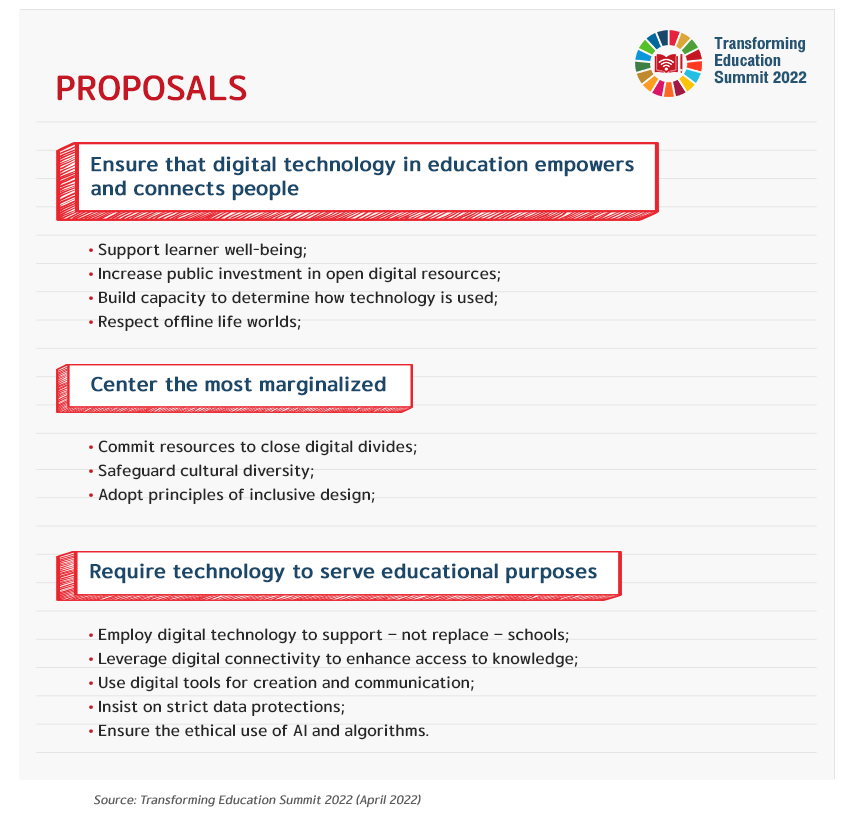
In digitization and digital technology lie inherent contradictions; In this regard, the digital revolution is no different than other seminal moments of technological change, as along with significant collective gains come alarming increases in inequality and exclusion brought on by disparities in infrastructure and access to connected devices, learning platforms, quality digital resources, and digital competencies. Globally, connectivity rates remain dreadfully asymmetric; Approximately 2 out of every 3 children and youths lack internet access at home, and girls and women are less likely to have digital skills and access, while it is not so uncommon for an average person in some countries to spend 10 hours a day online, immersed in digital technology.
Likewise, also caught up in a set of varied, provisional, and emerging relationships with digital technology is education; Computers are used in many schools and homes, and mobile phones are increasingly used in diverse educational settings, particularly those in areas with limited resources. Yet, while such learning tools are progressively becoming accessible — and many are aware of their immense and fascinating educational potential —, digital skill gaps among students and teachers continue to be a major obstacle to the use of technology in education. Digital transformation raises many human rights questions. Of particular note are those around the right to information, privacy, culture, and democratic participation.
In the use of digital technology lie as many challenges as opportunities, it has the potential to weaken and strengthen core principles of human dignity, such as the ability to form and pursue one’s purposes. On the other hand, algorithmic machine learning and artificial intelligence (AI) could change how social and political decisions are made by displacing human judgment with technological processes that may bring transparency, but might also remain shrouded in secrecy and complexity. Besides, there still is the potential decline of intellectual and personal freedom, a textbook illustration of the dangers posed by digital technology, it makes it easier to monitor and control people, which opens the door to abuse by authorities, corporations, or oligarchic regimes.
On the other hand, more often than not are the most common digital platforms used in education today designed to meet the business objectives of their proprietors, whether it be through selling advertising, increasing reliance on associated services, or harvesting user data. While this practice may continue to expand, the further development of open-code and public options could shift this landscape away from commercialism. Furthermore, as social, political, cultural, economic, and even interpersonal life continues to move into virtual spaces, it could profoundly alter how people interact with one another, what they aspire to, how they think, and how we teach and learn. To ensure digital technologies enhance educational processes and improve learning outcomes, here are some proposals included in the Reimagining Our Futures Together: A New Social Contract for Education report of the International Commission on the Futures of Education.

A learner-centered digital transformation will be supported to support learning for all and prepare them to navigate a world characterized by fast-evolving technologies. The Thai government will provide free, inclusive, and equitable access to online education through open-source platforms under the supervision of the Ministry of Education and relevant agencies. In doing so, emphasis will be placed on quality e-learning programs, appropriate teacher training, and policies that mainstream digital learning to ensure the safe use of digital technology and artificial intelligence.
Source: Transforming Education Summit 2022 (April 2022)

